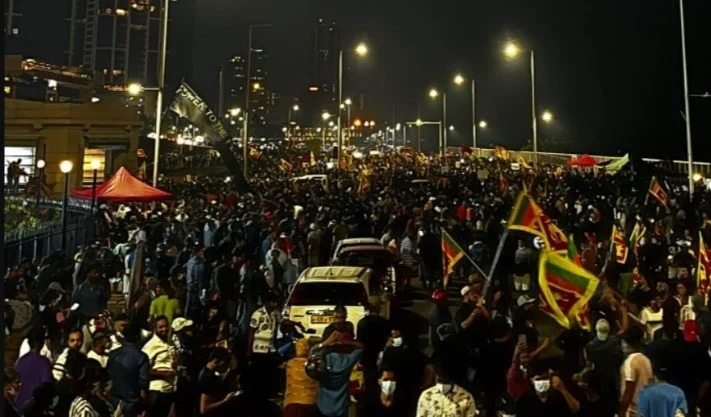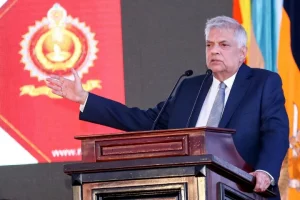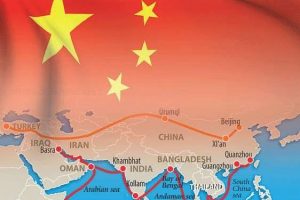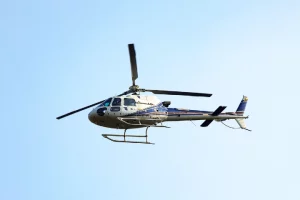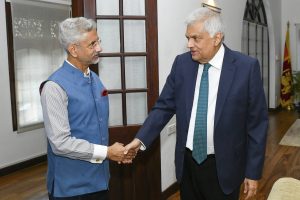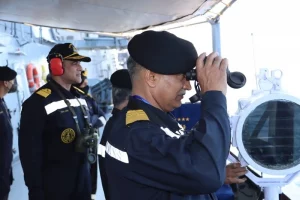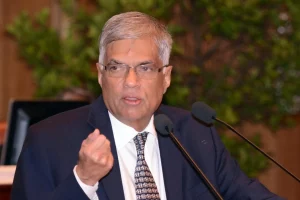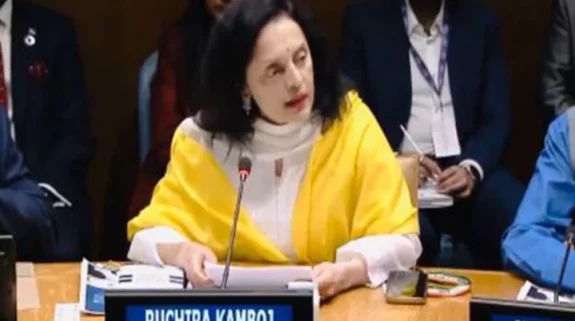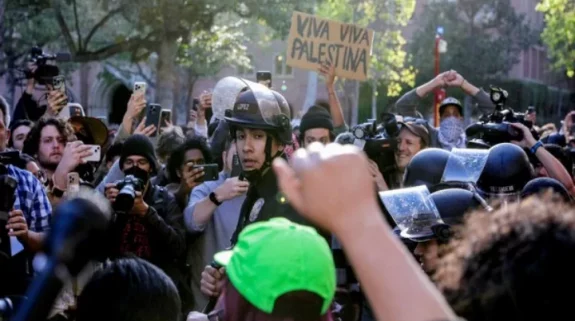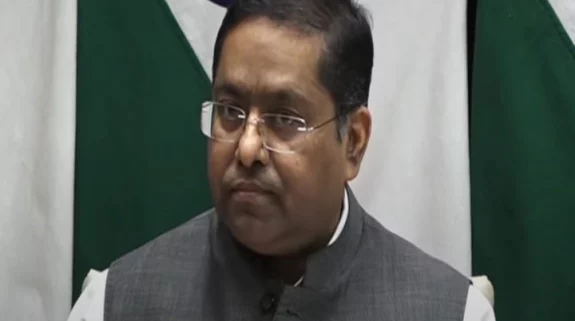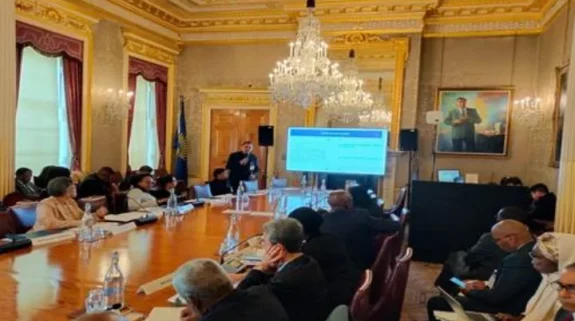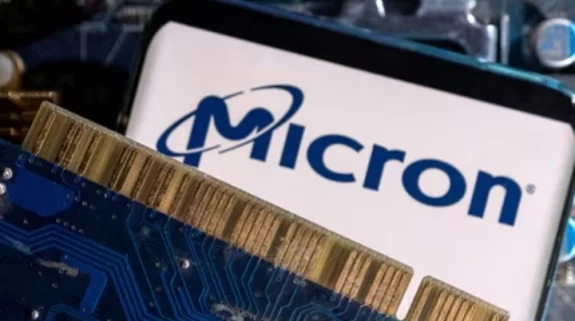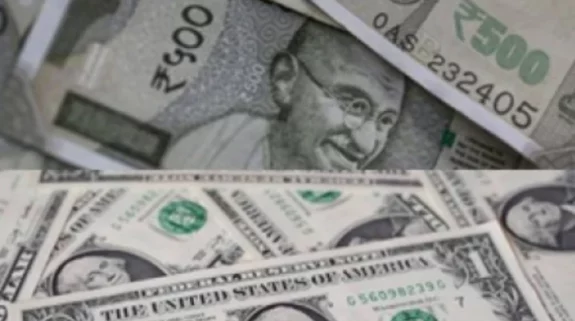Thousands of Sri Lankan students mobbed Prime Minister Mahinda Rajapaksa's home on Sunday asking him to quit over the worsening economic situation fast turning into a humanitarian crisis.
This was the second time in less than a month that protesting people have become violent outside the Prime Minister's home. Many have taken over the iconic Galle Face sea front to show their displeasure against government policies.
Moment when Sri Lanka University students joined the Galle Face protesters this evening
📸 Gayan Jayawardena pic.twitter.com/MLyVhT47GR
— NewsWire 🇱🇰 (@NewsWireLK) April 24, 2022
With placards that said "Go Home Gota" the students tried to breach through the security barricades leading to the Prime Minister's residence. The protestors are resolute that the Rajapaksa family–President Gotabaya Rajapaksa and his other family members have to relinquish power completely.
The two Rajapaksa brothers holding the top positions of the prime minister and the president, however, refuse to quit, despite strong public disapproval.
The economic crisis in Sri Lanka, building up since October last year due to a steady fall in the country's foreign exchange reserves, has now reached its peak with a crisis in almost every sphere of daily life. People are finding it difficult to navigate daily routines due to prolonged power cuts, record inflation, shortage of food and serpentine fuel queues,
Earlier last week, one person was killed in police firing in Rambukkana, just 80 km away from capital Colombo after the Ceylon Petroleum Corporation (CPC) announced a steep price hike in fuel prices.
Experts believe that the island nation is dealing with its worst economic downturn since its independence in 1948. A fortnight back, the country formally announced that it would not be able to pay back the $51 billion foreign loans that it has accumulated over the past decade.
The country's newly-appointed Finance Minister Aly Sabri is currently leading a high-powered delegation to Washington to meet with the International Monetary Fund (IMF) for a financial bail-out.
The Sri Lankan economy has been hit by a series of events and policy decisions including the Easter bomb attacks by Islamist terrorists, the spread of the coronavirus pandemic, decrease in remittances by diaspora, the reduction of taxes by President Rajapaksa and the steady piling up of debt over many years. Mega projects unloaded on Colombo by Beijing have only helped the country in increasing its debt burden.
The Indian Ocean island nation has managed to hold on largely because of Indian support in supplying food and fuel since the beginning of this year.






